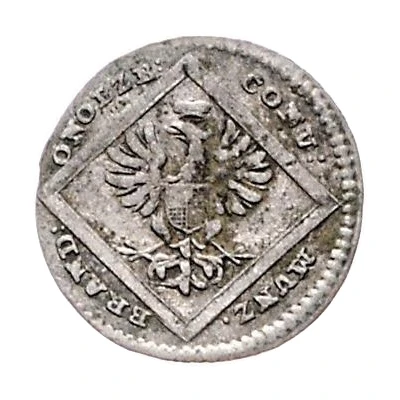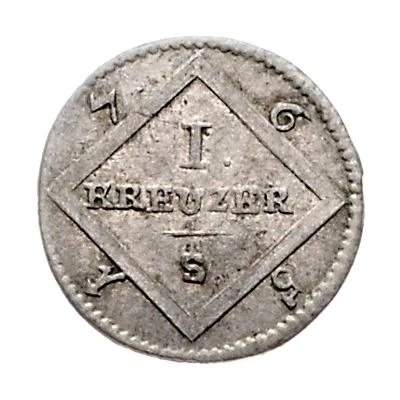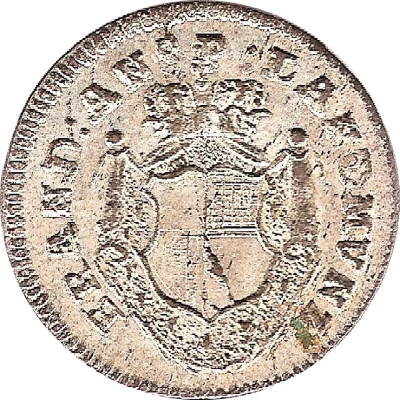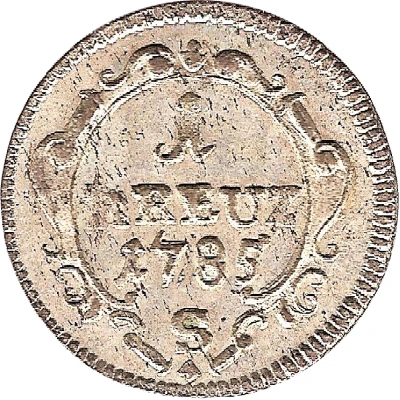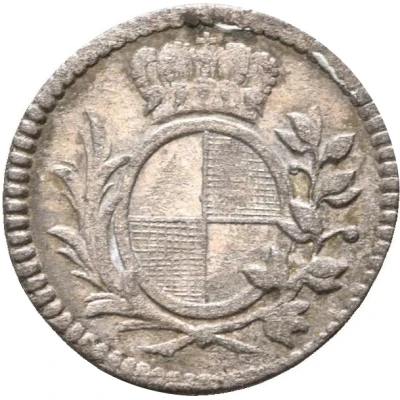
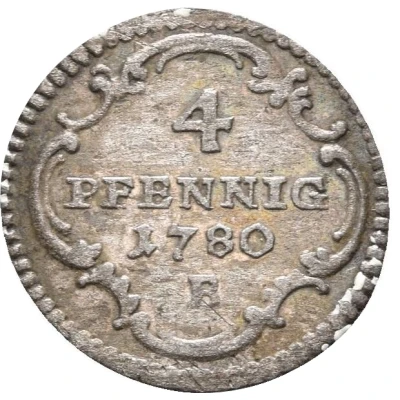

© Münzenhandlung Raimund Raffler
4 Pfennigs - Christian Frederick Charles Alexander
| Billon | - | 16 mm |
| Issuer | Margraviate of Brandenburg-Ansbach (German States) |
|---|---|
| Margrave | Charles Alexander (Karl Alexander) (1757-1791) |
| Type | Standard circulation coin |
| Years | 1779-1780 |
| Value | 4 Pfennigs (4 Pfennige) (1⁄72) |
| Currency | Thaler |
| Composition | Billon |
| Diameter | 16 mm |
| Shape | Round |
| Orientation | Coin alignment ↑↓ |
| Demonetized | Yes |
| Updated | 2024-10-05 |
| Numista | N#233452 |
|---|---|
| Rarity index | 95% |
Reverse
Value, date and mintmark in a baroque frame.
Script: Latin
Lettering:
4
PFENNIG
1779
B
Comment
Slg.Grüber 4822Unlisted in KM catalogue.
Interesting fact
One interesting fact about the 4 Pfennigs coin from the Margraviate of Brandenburg-Ansbach is that it was made of Billon, which is an alloy of copper and silver. This was a common practice in the German States during the 18th century, as it allowed for the production of coins with a lower silver content, making them more affordable to produce and circulate. Despite being made of a less valuable material, the coin still features a detailed design, including an image of Christian Frederick Charles Alexander, the Margrave of Brandenburg-Ansbach, on one side, and a crowned eagle on the other. This coin is a unique piece of history that provides insight into the economic and political climate of the German States during this time period.
